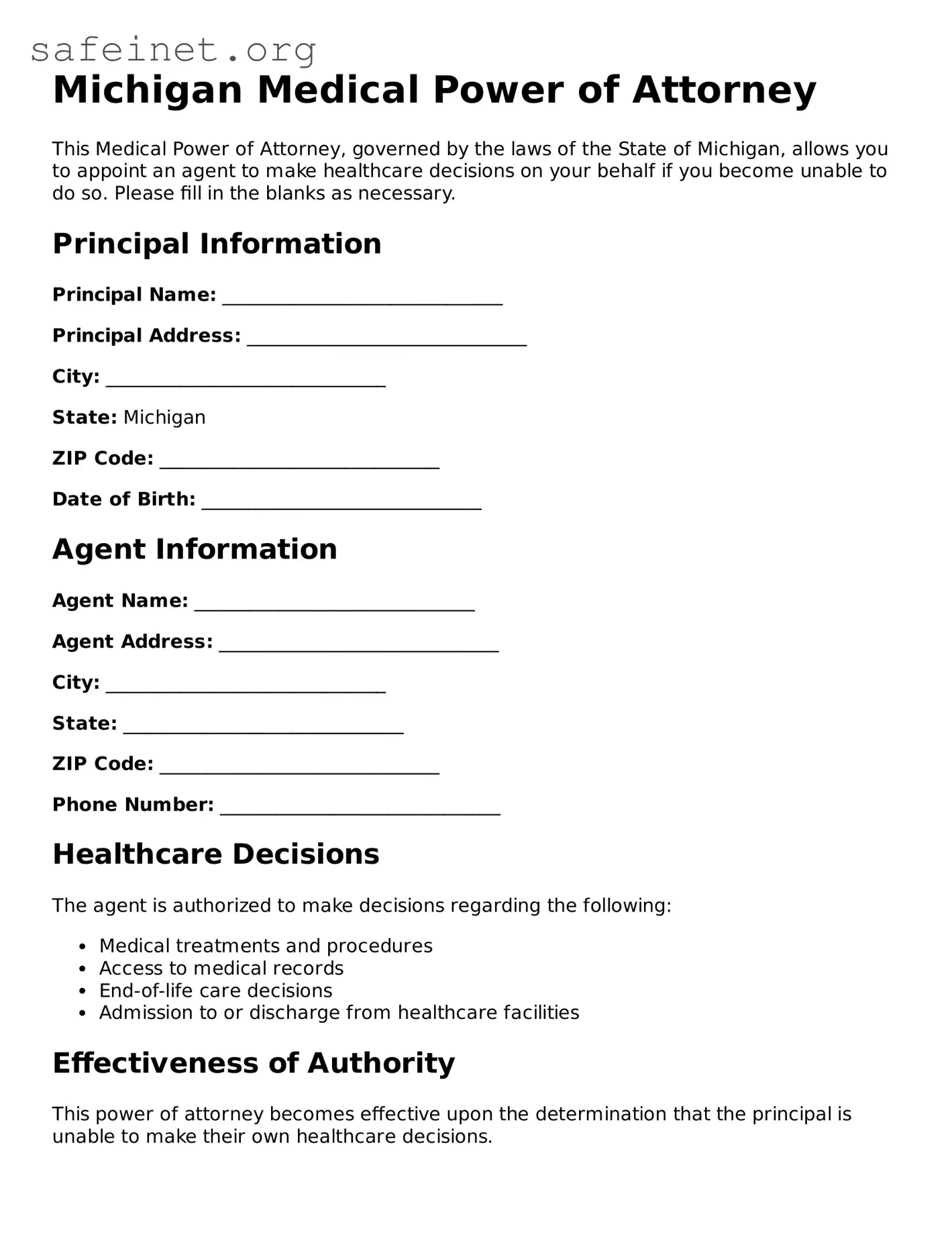What is a Michigan Medical Power of Attorney?
A Michigan Medical Power of Attorney is a legal document that allows you to appoint someone to make medical decisions on your behalf if you become unable to make those decisions yourself. This person, known as your agent, will have the authority to discuss and make choices regarding your health care and treatment options based on your preferences and best interests.
How do I create a Medical Power of Attorney in Michigan?
To create a Medical Power of Attorney in Michigan, you need to fill out a specific form that designates your chosen agent. It is crucial that you are at least 18 years old and mentally competent when completing the form. Once the form is filled out, you should sign it in front of a witness who is also at least 18 years old. It is recommended to keep multiple copies for your records and to provide one to your healthcare providers.
Who can be my agent in a Medical Power of Attorney?
Your agent can be any adult you trust to make medical decisions for you, except for your healthcare provider or an employee of the healthcare provider unless they are also a relative. It is vital to choose someone who understands your wishes regarding medical treatment and will advocate for your preferences in difficult situations.
Can I revoke my Medical Power of Attorney?
Yes, you can revoke your Medical Power of Attorney at any time, as long as you are mentally competent. To do this, you should provide a written statement indicating that the previous document is no longer valid. Inform your agent and any healthcare providers about the revocation to ensure your current wishes are known and followed.
Does my Medical Power of Attorney expire?
Your Medical Power of Attorney does not have an expiration date unless you specify one in the document itself. However, if you revoke it or if your agent becomes unable to fulfill their role (due to death or incapacity), the authority granted to them will end, and you would need to appoint a new agent if desired.
How does a Medical Power of Attorney differ from a Living Will?
A Medical Power of Attorney appoints someone to make healthcare decisions on your behalf, while a Living Will provides specific instructions about your treatment preferences in the event that you cannot communicate your wishes. Both documents can work together to ensure your healthcare preferences are honored.
Is a Medical Power of Attorney valid in other states?
While a Michigan Medical Power of Attorney is valid in other states, some states may have different requirements or forms. It is best to check the specific laws of the state in which you are seeking medical care to ensure that your document is accepted. Having the document notarized can help verify its authenticity across state lines.
Can I include specific instructions in my Medical Power of Attorney?
Yes, you can include specific instructions in your Medical Power of Attorney. Although the primary focus is on appointing your agent, adding details about your health care preferences or values can provide guidance to your agent when making decisions on your behalf. It is beneficial to discuss these preferences with your agent in detail.
What should I do with my Medical Power of Attorney once it’s completed?
Once your Medical Power of Attorney is completed and signed, distribute copies to your agent, your primary healthcare provider, and any family members you feel should be aware of your wishes. Keeping a signed copy in a safe place where you or your loved ones can access it easily is important for ensuring it is available when needed.
